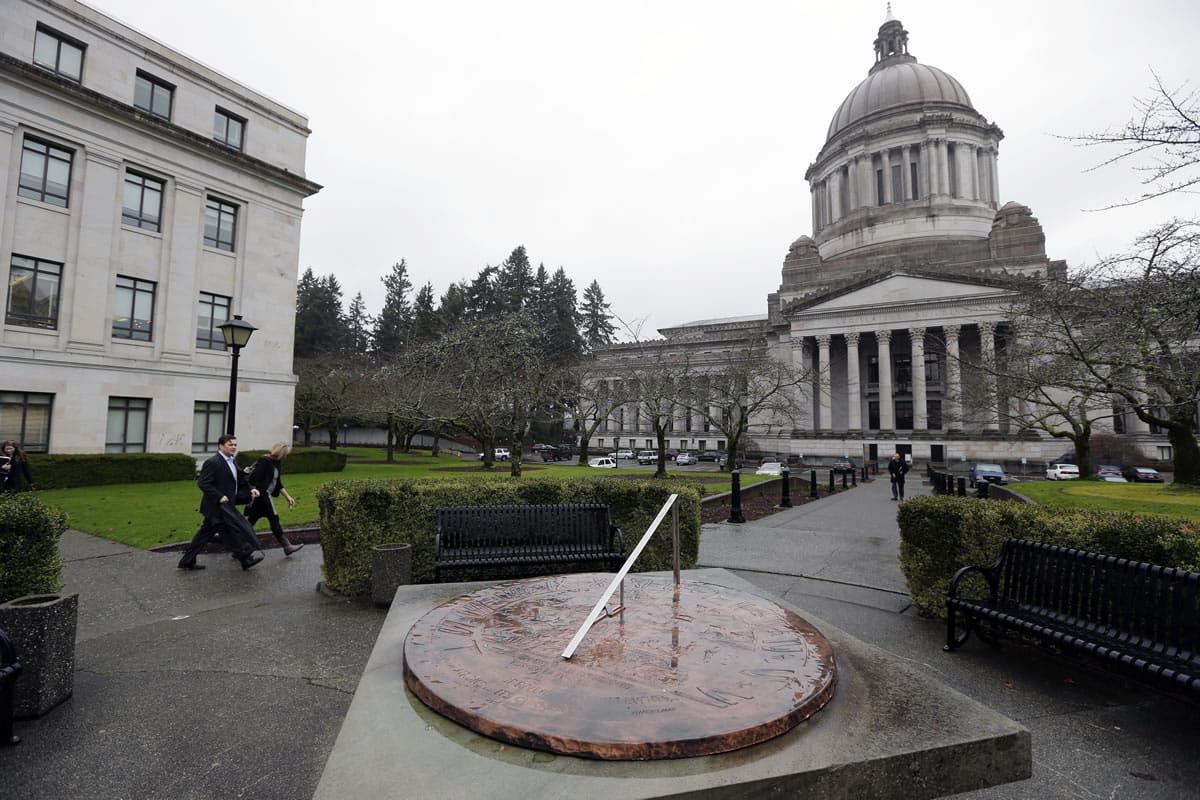Washington lawmakers left the state Capitol after completing their regular session Thursday, but they still have a touchy homework assignment to complete and not much time to get it done.
The Legislature owes the state Supreme Court a progress report on public-school funding, and it is due by April 30.
In a blunt order growing out of the landmark 2012 McCleary ruling, the court told lawmakers in January that it wants to see exactly how they intend to meet by 2017-18 their constitutional obligation to fully fund basic education.
“I felt from the get-go we needed to have a plan that was legislatively passed,” said Sen. David Frockt, a Seattle Democrat and leader on the school funding issue in his minority caucus. “My read was we needed to pass a plan.”
But as the 60-day session wound to a close Thursday night and lawmakers approved a supplemental budget by lopsided margins, it was clear no such plan would emerge in the form of a law this year. Short of that, Frockt and other key lawmakers were not sure what response they’ll make – or how it will come about.
Sen. Steve Litzow, the Mercer Island Republican who chairs the Senate’s education committee, said he thinks a chance remains that the Democrat-controlled House and Republican-led Senate will get together on a single plan to submit to the court. Litzow said both parties and chambers were able to submit a single plan to the court last year.
Gov. Jay Inslee, who had brought a dozen lawmakers into his office last month to talk about the question, said he plans to bring parties together one more time before April 30. He said he is not sure how well the court will receive the Legislature’s incremental actions this year to boost school funding, a year after putting $1 billion of new K-12 money into basic education programs.
“The Supreme Court in their decision said specifically that they expected the Legislature to make concrete and immediate action toward McCleary. I proposed that they do so by investing $200 million; they came up with $58 million. The court will have to do with that what it will,” Inslee, a Democrat, said.
State schools chief Randy Dorn said the state needed $400 million this year to move toward what he predicts will need to be $7 billion in new investments by 2017-18.
Lawmakers disagree on the amounts required. Their estimates range from $3 billion to more than $8 billion, with many pegging the figure at between $4 billion and $5 billion.
Litzow said he doesn’t know if there will be a unified response to the court, or one from each of the Legislature’s four caucuses. But he considers the letter to the court less challenging than getting agreement on how to pay for school improvements.
“The bigger issue is we have to get back here in ’15 and figure out how to do this” full funding in a budget, Litzow said. “We could likely sit down and write one report to the Supreme Court.”
But if not, the House and Senate have considered bills that may outline pathways to full funding.
Frockt’s caucus introduced a bill identifying what it would invest in – and when – leading up to the 2017-18 school year. So did the House Democrats. Republican Sen. Andy Hill of Redmond also sponsored a bill that pledges two-thirds of future new state revenue for education, including early learning and higher education.
But none of those passed into law.
Democratic Sen. Jamie Pedersen of Seattle, who helped craft legislation for the Legislature’s joint committee on school funding when he was in the House, said lawmakers could take several approaches.
One tack, Pedersen said, would be to point out that lawmakers are well aware of the court’s concerns and that the court put $58 million more money into K-12 schools in the supplemental budget approved Thursday. That budget also adjusted funding for schools to what are called maintenance levels, reflecting such added costs as higher enrollments in the K-12 system.
Pedersen said lawmakers could also point out they didn’t cut new holes into the tax base. Instead they rejected requests to create new tax breaks, and they let a few politically popular exemptions expire.
“I’ve never been at the end of a session where we have not done new tax breaks. The House did stunning work in stopping all of them,” Pedersen said. “That is why I voted for the (final) budget.”
Additionally, Pedersen said the Legislature could point to some “big ideas and proposals” such as using Lottery money to pay for more than $700 million in bonds for classrooms that will be needed when the state moves to all-day kindergarten and lowers student-to-teacher ratios. That House plan received 90 votes but died in the Senate.
Similarly, the governor proposed closing seven tax exemptions to produce $200 million in new revenues a year for schools.
An open question is what the court will do if it finds lawmakers’ actions lacking. Holding the Legislature in contempt was one option specifically mentioned by the court.
“The Legislature has not moved far enough or fast enough to comply with the court order in the McCleary ruling,” said Nick Brossoit, president of the Network for Excellence in Washington Schools and superintendent for Edmonds School District. The network is a coalition of teachers, school districts, parents and community groups that sued to force higher funding by the state.
“It remains the determination of the Supreme Court as to the next and appropriate steps or sanctions for the state in not meeting its constitutional duty to public school students in Washington.”



